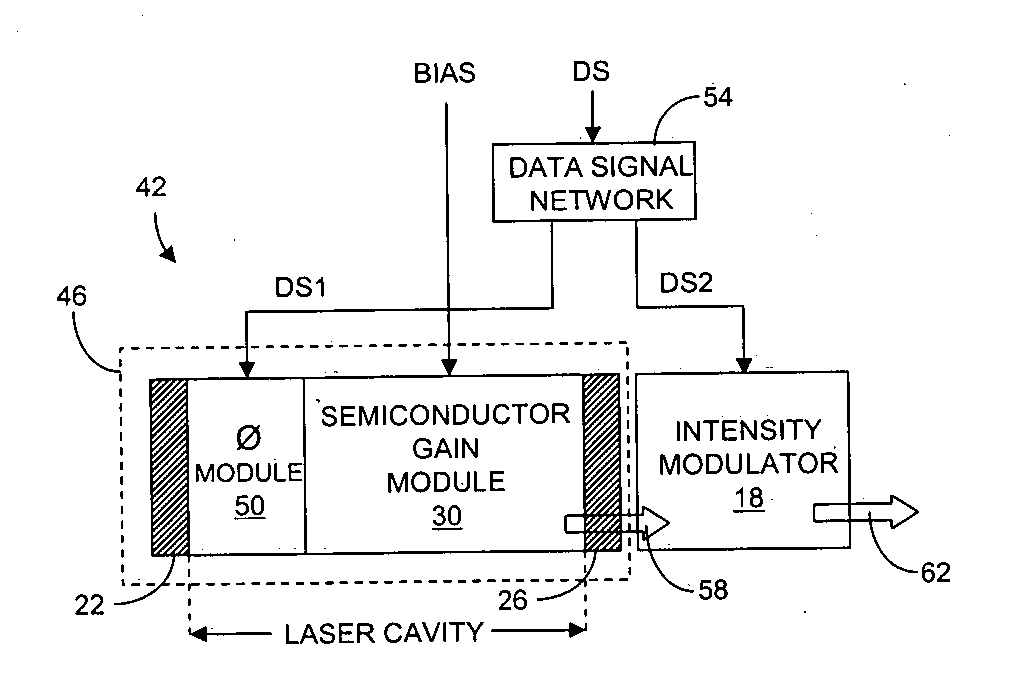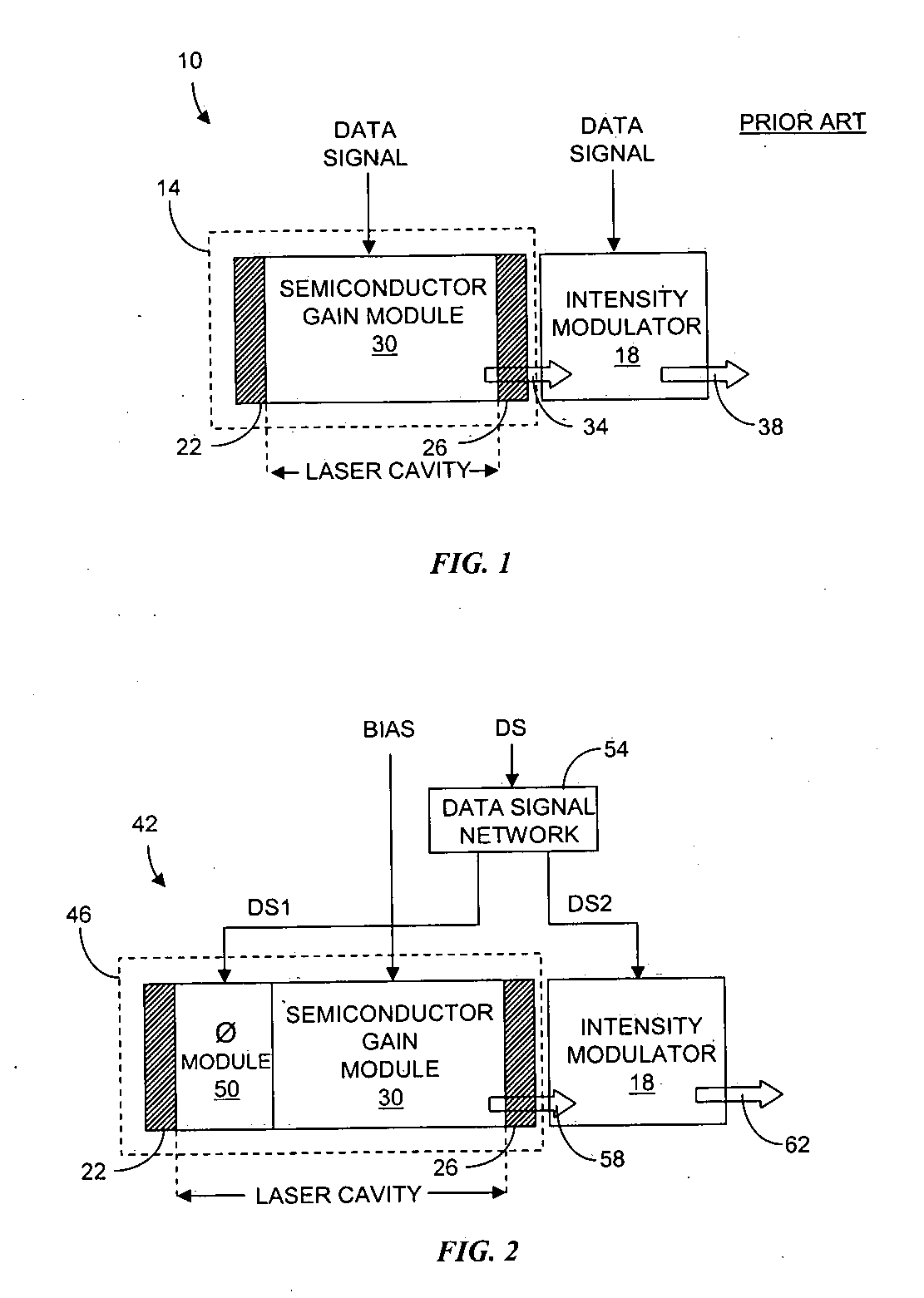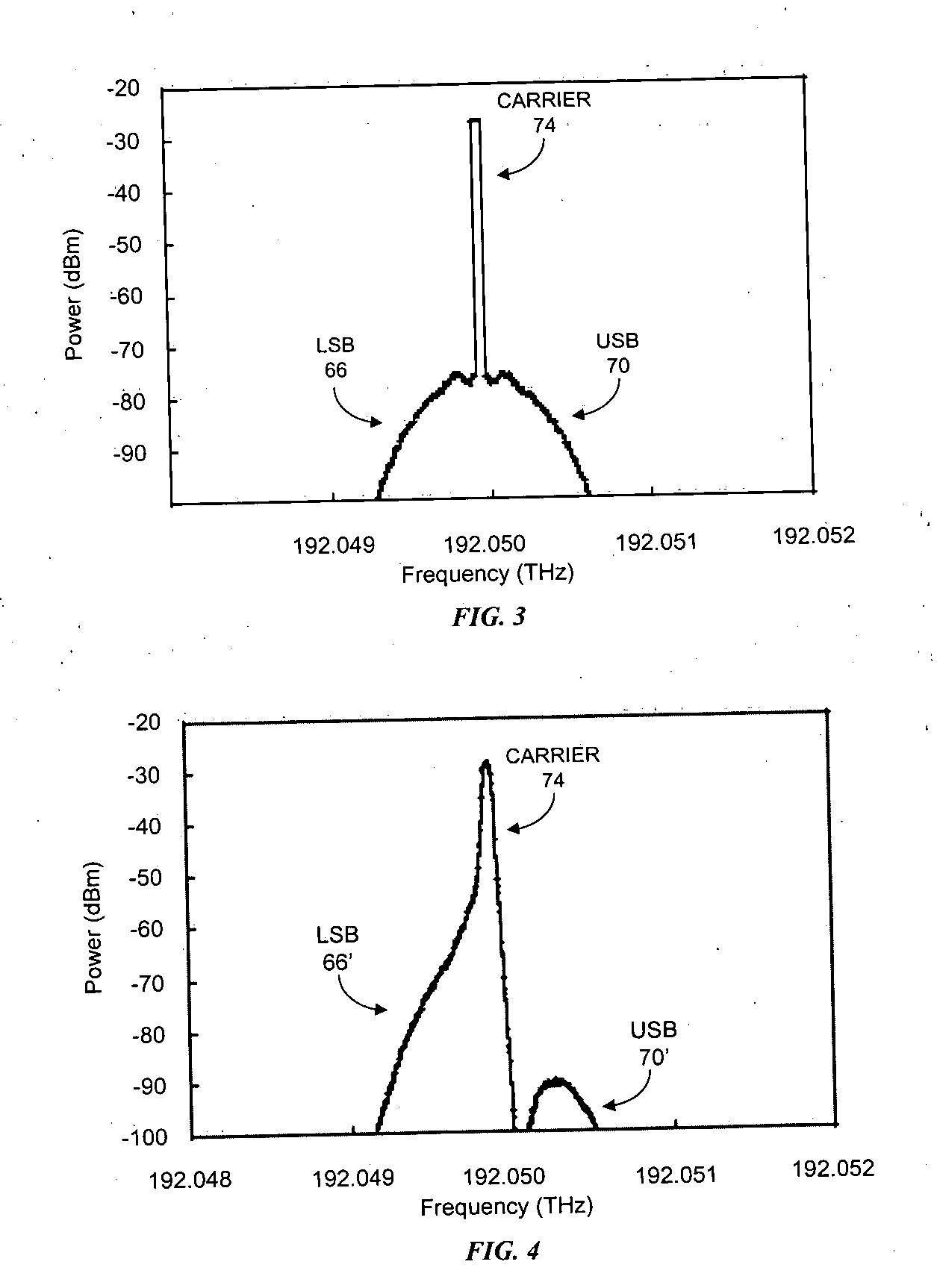Single sideband optical transmitter
a single-sideband, optical transmitter technology, applied in the field of optical communication, can solve the problems of difficult upgrade of a communications network, high data rate optical communication system subject to the effects of chromatic dispersion, and optical loss that may not be acceptable for high bit rate systems
- Summary
- Abstract
- Description
- Claims
- Application Information
AI Technical Summary
Benefits of technology
Problems solved by technology
Method used
Image
Examples
Embodiment Construction
[0015] In brief overview the present invention relates to an optical transmitter for generating an SSB optical signal. A semiconductor laser and an intensity modulator are integrated in a single transmitter device. The semiconductor laser includes an integral phase module for generating a frequency modulated optical signal. The SSB optical transmitter of the invention has fewer components than other transmitters used to generate SSB optical signals and, therefore, has an increased manufacturing yield and reliability, a lower fabrication cost and a decreased size. Communication networks can be upgraded for higher data rates by replacing existing optical sources with the SSB optical transmitter of the invention without the need to modify or replace other physical infrastructure. Moreover, the maximum allowable distance between the optical source and its receiver can be more than doubled and in some instances can exceed the maximum allowable distance of DSB optical transmitters by a fa...
PUM
 Login to View More
Login to View More Abstract
Description
Claims
Application Information
 Login to View More
Login to View More - R&D
- Intellectual Property
- Life Sciences
- Materials
- Tech Scout
- Unparalleled Data Quality
- Higher Quality Content
- 60% Fewer Hallucinations
Browse by: Latest US Patents, China's latest patents, Technical Efficacy Thesaurus, Application Domain, Technology Topic, Popular Technical Reports.
© 2025 PatSnap. All rights reserved.Legal|Privacy policy|Modern Slavery Act Transparency Statement|Sitemap|About US| Contact US: help@patsnap.com



